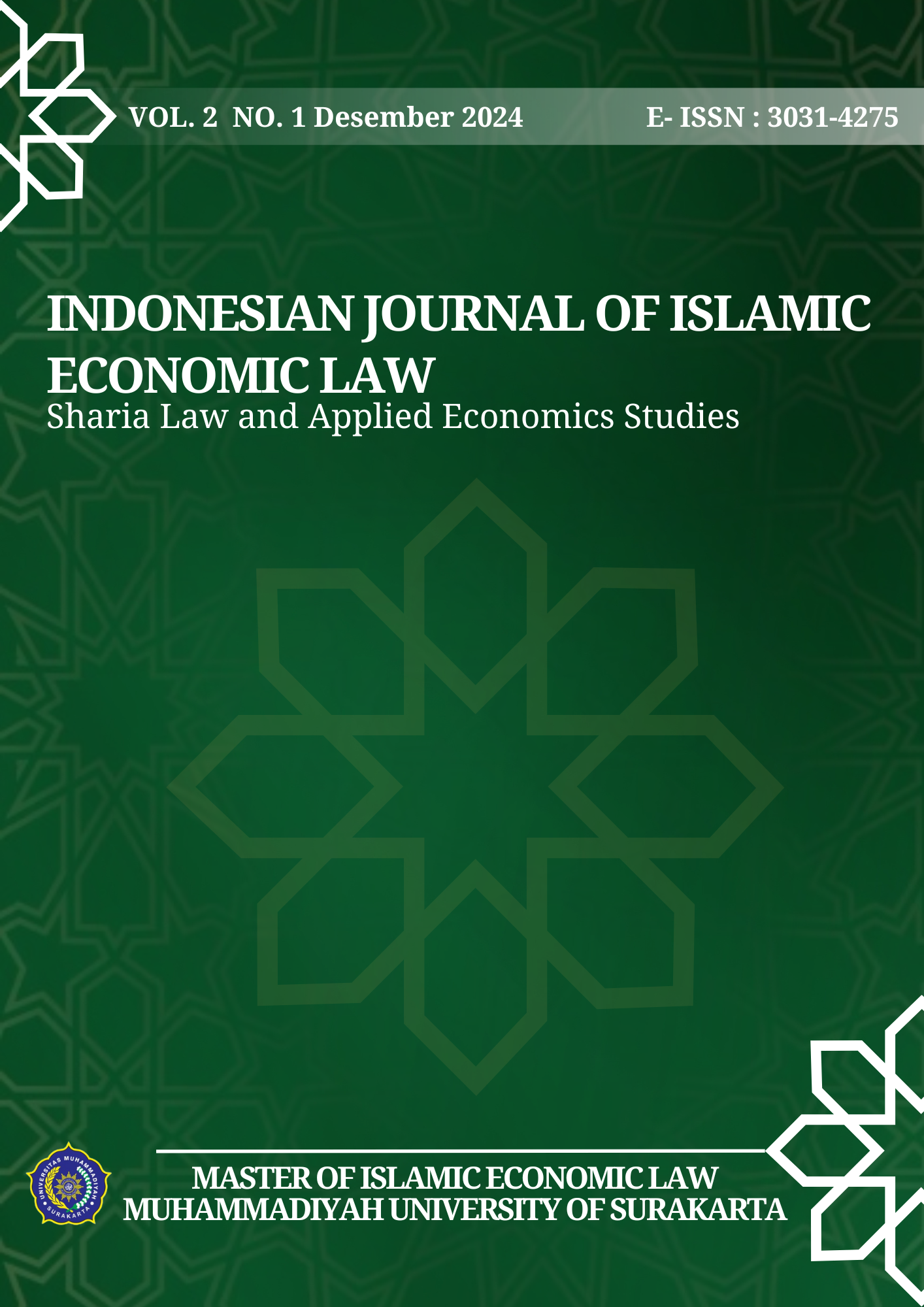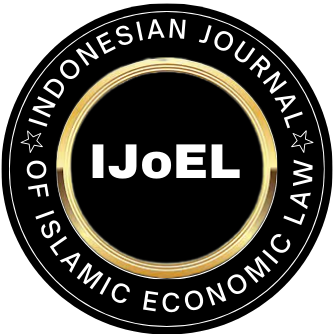Manhaj Tarjih: Navigating Ijtihad in The Disruption Era
DOI:
https://doi.org/10.23917/ijoel.v2i1.7044Keywords:
Manhaj Tarjih, Muhammadiyah, Era of disruption, Responsive FiqhAbstract
The objective of this study is to examine how the era of disruption is accommodated within the framework of Muhamamdiyah's ijtihad fiqh and how this framework is designed to navigate a responsive fiqh in the era of disruption. A qualitative normative research approach was employed to collect data through relevant literature studies, which were then analyzed comprehensively using content analysis, in conjunction with the takhrij of fiqhiyah principles derived from the manhaj methodology of Muhamadiyah's ijtihadfiqh. The findings indicate that the methodology of ijtihadfiqh employed by Muhammaddiyah extracts core concepts from ushul fiqh principles and fiqh maxims, thereby identifying the underlying rationale behind the selection of these principles. Furthermore, this study explores how existing fiqh rulings of muhammadiyah reflect responses to the challenges of the era of disruption. The study's findings reveal that the era of disruption, functioning as an independent variable, exerts a significant influence on the design of Muhamamdiyah's ijtihadfiqh methodology, which is a dependent variable. This methodology is meticulously structured to produce fiqh that is not only responsive but also adaptive to the demands of the contemporary era. The novelty of this research lies in its correlational description between the era of disruption and Muhamamd's ijtihadfiqh methodology, demonstrating how this ijtihad method functions as a compass in addressing the dynamics of rapid change
Downloads
References
Al-Shāṭibī, A. I. I. ibn M. ibn M. al-L. (1997). al-Muwāfaqāt, taḥqīq Abū ’Ubaydah Mashhūr ibn Ḥasan Āl Salmān, taqdīm Bakr ibn ’Abdullāh Abū Zayd. al-Nāshir: Dār Ibn ’Affān.
Anwar, S. (2016). Teori Pertingkatan Norma dalam Usul Fikih. Ilmu Syari’ah Dan Hukum, 50(1), 142–167. Retrieved from http://asy-syirah.uin-suka.com/index.php/AS/article/viewFile/501-06/158
Baidhawy, Z. (2017). Muhammadiyah dan Spirit Islam Berkemajuan dalam Sinaran Etos Alqur’an. Afkaruna: Indonesian Interdisciplinary Journal of Islamic Studies, 13(1). https://doi.org/10.18196/aiijis.2017.0066.17-47
Burhani, A. N. (2020). Comparing Tablighi Jamaat and Muhammadiyah Responses to Covid-19. ISEAS Perspective, 75(2020).
Fauzi, N. A. F., & Ayub, A. (2019). Fikih Informasi : Muhammadiyah’s Perspective on Guidance in Using Social Media. Indonesian Journal of Islam and Muslim Societies, 9(2). https://doi.org/10.18326/ijims.v9i2.267-294
Hakim, M. L., Prasojo, Z. H., Masri, M. S. B. H., Faiz, M. F., Mustafid, F., & Busro, B. (2023). Between Exclusivity and Inclusivity of Institutions: Examining the Role of the Indonesian Ulema Council and Its Political Fatwa in Handling the Spread of Covid-19. Khazanah Hukum, 5(3). https://doi.org/10.15575/kh.v5i3.30089
Hilmy, M. (2013). Whither Indonesia’s islamic moderatism?: A reexamination on the moderate vision of Muhammadiyah and NU. Journal of Indonesian Islam, 7(1). https://doi.org/10.15642/JIIS.2013.7.1.24-48
Isman, Hambali, A. I., & Eldeen, A. B. (2024). Transcendental Law and Legal Reform in the Digital Era. AI in Business: Opportunities and …. https://doi.org/10.1007/978-3-031-49544-1_44
Maftuhin, A., & Muflihati, A. (2022). The Fikih Difabel of Muhammadiyah: context, content, and aspiration to an inclusive Islam. Indonesian Journal of Islam and Muslim Societies, 12(2). https://doi.org/10.18326/ijims.v12i2.341-367
Mubarok, J., & al-Firdausy, H. G. (2006). Hukum Islam: konsep, pembaruan, dan teori penegakan. Benang Merah Press.
Muttaqin, A., Hamsah, U., & Abror, R. H. (2023). Muhammadiyah, Sufism, and the quest for ‘authentic’ Islamic spirituality. Indonesian Journal of Islam and Muslim Societies, 13(1). https://doi.org/10.18326/ijims.v13i1.199-226
Nasir, M. M. (2023). Weaving Modernity in Salafism. Australian Journal of Islamic Studies, 8(3). https://doi.org/10.55831/ajis.v8i3.619
Syamsul Anwar dan Tim Materi Manhaj Tarjih. (2024). Pengembangan Manhaj Tarjih Muhammadiyah, Materi Musyawarah Nasional XXXII Tarjih Muhammadiyah.
Downloads
Submitted
Accepted
Published
How to Cite
Issue
Section
License
Copyright (c) 2025 Ruslan Fariadi, Aryani Ikasari, Salwa Nafiza

This work is licensed under a Creative Commons Attribution 4.0 International License.










